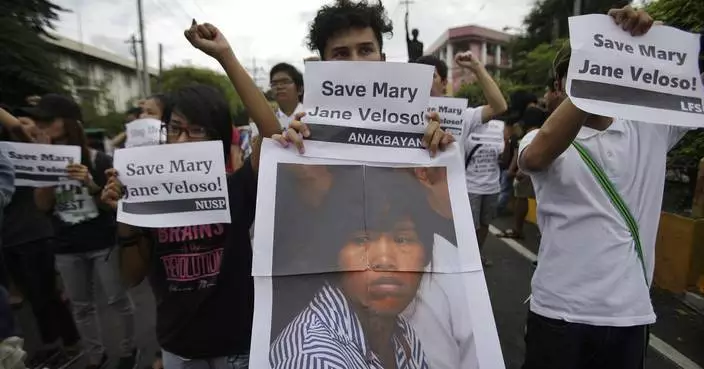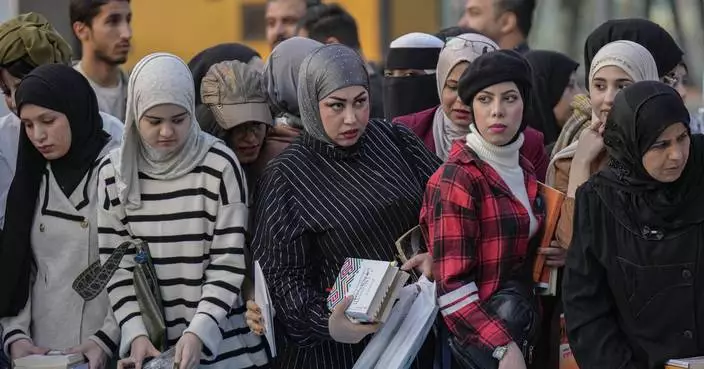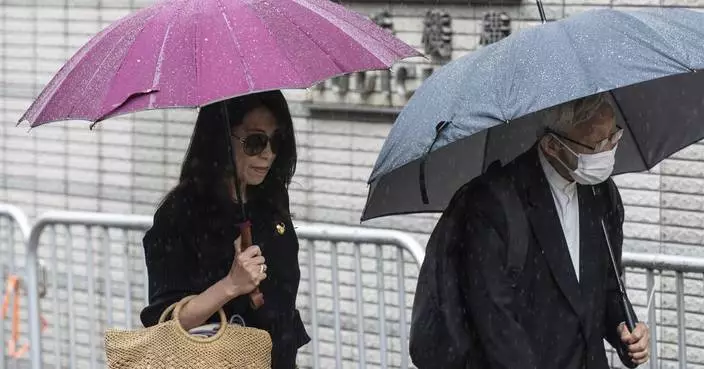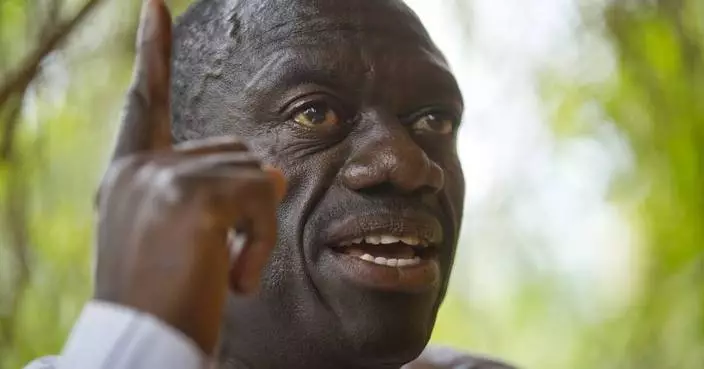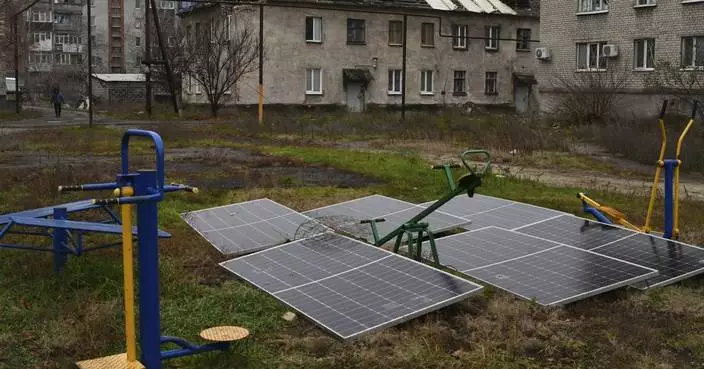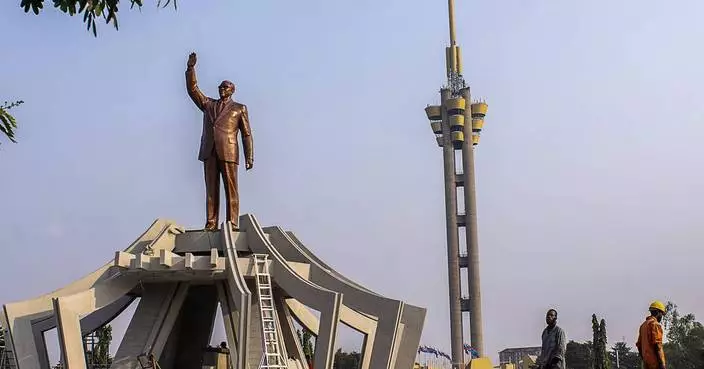GOTHENBURG, Sweden--(BUSINESS WIRE)--Nov 20, 2024--
Frontgrade Gaisler has launched its latest radiation-hardened microcontroller, the GR716B. Building on the success of the GR716A, this latest innovation is a step forward in the development of energy-efficient and adaptable microcontrollers for space applications. As missions grow in complexity and ambition, the industry sees a growing need for technologies that not only deliver dependable performance over long durations, but also have the capabilities to manage a multitude of tasks.
This press release features multimedia. View the full release here: https://www.businesswire.com/news/home/20241119230521/en/
The GR716B is an all-in-one solution for supervision, monitoring, and control in satellite applications. Designed with versatility in mind, the new microcontroller adapts effortlessly to a wide range of space systems due to its comprehensive set of standard interfaces, architectural features, and integrated analogue functions.
Sandi Habinc, General Manager at Frontgrade Gaisler, remarked, "With the GR716B, we are excited to offer a solution that reflects the growing ambitions of the space industry. The GR716B engineering models are now being made available to alpha customers for integration into new missions."
The GR716B combines proven technology with innovations that address the space industry’s most pressing challenges such as the need for low power consumption and efficient use of onboard resources. Frontgrade Gaisler also plans to bring the GR716B System-in-Package (SiP) solution to market, which combines the new microcontroller with non-volatile memory, thereby simplifying system design.
The development of the GR716B was made possible through support from the European Space Agency’s (ESA) Core Competitiveness programme, part of the Advanced Research in Telecommunications Systems programme and within ESA’s Connectivity and Secure Communications directorate, and Swedish National Space Agency (SNSA), representing a continued commitment to advancing space-grade technologies.
Domenico Mignolo, ESA Acting Head of Technology and Products Division, said, “We are glad to support Frontgrade Gaisler through our Core Competitiveness programme. By supporting the development of versatile space-grade microcontrollers, ESA aims to bring innovation in satellite communications in order to strengthen industrial competitiveness.”
For more information, visit www.gaisler.com/gr716b.
About Frontgrade Gaisler
Frontgrade Gaisler is a leading provider of radiation-hardened microprocessors and IP cores for critical applications, particularly in the space industry. The company’s processors are known for their reliability, fault tolerance, and radiation tolerance, making them ideal for any space mission or other high-reliability application.
About ESA’s ARTES Core Competitiveness programme
The European Space Agency (ESA) is Europe's gateway to space, coordinating the financial and intellectual resources of its Member States to conduct space programmes and activities. The Core Competitiveness programme line of ESA's Advanced Research in Telecommunications Systems (ARTES) provides funding and multi-disciplinary expertise to enhance competitiveness in satellite communications. It supports specific activities carried out by SMEs, large industrial consortia and research organisations aimed at developing innovative products and services that strengthen Europe and Canada's position as global leaders in the satcom market. Through its two components, ARTES Advanced Technology and ARTES Competitiveness and Growth, this programme enables organisations to transform promising concepts into market-ready solutions, covering the entire development cycle.
Learn more at https://connectivity.esa.int/core-competitiveness.


Frontgrade's rad-hard GR716B microcontroller is an all-in-one solution for supervision, monitoring, and control in satellite applications. (Graphic: Business Wire)
BAKU, Azerbaijan (AP) — With time running down, negotiators at the United Nations annual climate talks on Wednesday returned to the puzzle of finding an agreement to bring far more money for vulnerable nations to adapt than wealthier countries have shown they're willing to pay.
Pressure was building to drive a deal by the time COP29, as this year's summit is known, concludes this week. COP29 President Mukhtar Babayev asked negotiators to clear away the technical part of talks by Wednesday afternoon so they can focus on substance.
That substance is daunting. Vulnerable nations are seeking $1.3 trillion to deal with damage from climate change and to adapt to that change, including building out their own clean-energy systems. Experts agree that at least $1 trillion is called for, but both figures are far more than the developed world has so far offered.
Half the world away in Rio, Brazil, where the Group of 20 summit was wrapping up on Tuesday, the United Nations Secretary-General Antonio Guterres told the group of the world’s largest economies that “the success of COP29 is largely in your hands.”
“That goal, the financial goal, in its different layers, must meet the needs of developing countries, beginning with a significant increase in concessional public funds,” he said.
And the president of Brazil, Luiz Inácio Lula da Silva, said developed nations should consider moving their 2050 emission goals forward to 2040 or 2045.
“The G20 is responsible for 80% of greenhouse effect emissions,” he said. “Even if we are not walking the same speed, we can all take one more step.”
Negotiators are fighting over three big parts of the issue: How big the numbers are, how much is grants or loans, and who pays. The “how big” question is the toughest to negotiate and will likely be resolved only after the first two are solved, COP29 lead negotiator Yalchin Rafiyev told The Associated Press in an interview Tuesday.
“There are interlinkages of the elements. That’s why having one of them agreed could unlock the other one,” Rafiyev said.
Alden Meyer of the European think tank E3G and veteran negotiations analyst summed up the state of negotiations on Wednesday by saying the word of the day at the talks is “circle… as in going around in circles."
“All presidencies must at this point show that they have what it takes to move from administration to leadership," German climate envoy Jennifer Morgan said. "They must set the expectation for ambitious outcomes across the board. ... It is now up to the presidency to ensure that we move at full speed towards a green future.”
The current goal of $100 billion annually was set in 2009. Rich nations have so far been reluctant to offer a starting figure to replace that. Rafiyev said the conference presidency has sought to pressure them, telling them that the figure should be "fair and ambitious, corresponding to the needs and priorities of the world.”
India’s junior environment minister Kirti Vardhan Singh, who is at the Baku talks, said that “the Global South are bearing a huge financial burden.”
“This is severely limiting our capacity to meet our developmental needs,” he said.
The European Union is expected to finally offer a figure, likely ranging from $200 billion to $300 billion annually, Linda Kalcher, executive director of the think tank Strategic Perspectives, said Tuesday.
That wasn't enough for Debbie Hillier, climate policy lead for the humanitarian group Mercy Corps, who called it “wildly out of step with the needs of developing countries” and a failure by richer nations to live up to the agreement of the 2015 Paris climate talks.
“If $200-300 billion is indeed the ballpark for what developed countries will offer, then this is a betrayal — a betrayal of the communities around the world who, whilst least responsible for climate change, are bearing its most devastating consequences," she said.
Some wealthy nations were talking of loans that could be leveraged to attract other money — grants, more loans and private investment — to multiply the funds they can offer.
But poorer nations say they are already drowning in debt and most money should come in the form of grants.
“It is possible to find constructive, innovative solutions," said Denmark’s climate minister Lars Aagaard. “But it requires trust.”
The Associated Press’ climate and environmental coverage receives financial support from multiple private foundations. AP is solely responsible for all content. Find AP’s standards for working with philanthropies, a list of supporters and funded coverage areas at AP.org.
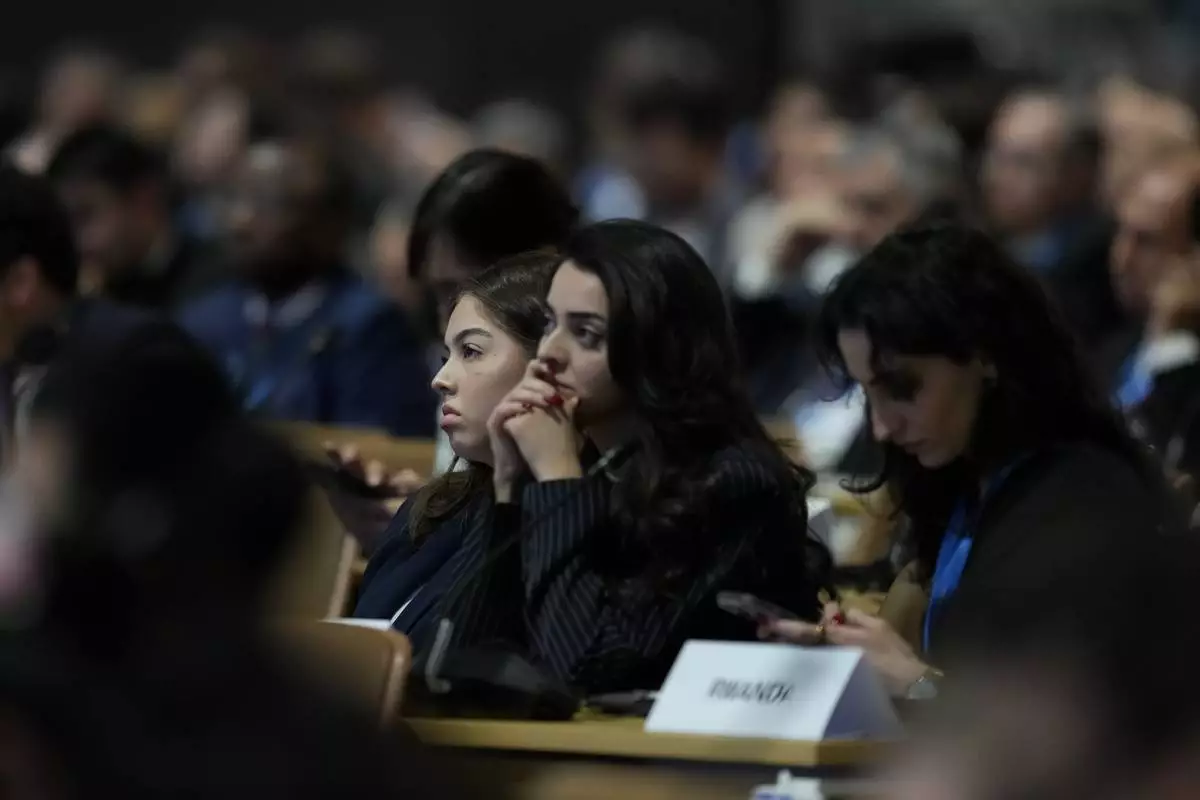
Attendees listen during a session on urbanization at the COP29 U.N. Climate Summit, Wednesday, Nov. 20, 2024, in Baku, Azerbaijan. (AP Photo/Rafiq Maqbool)
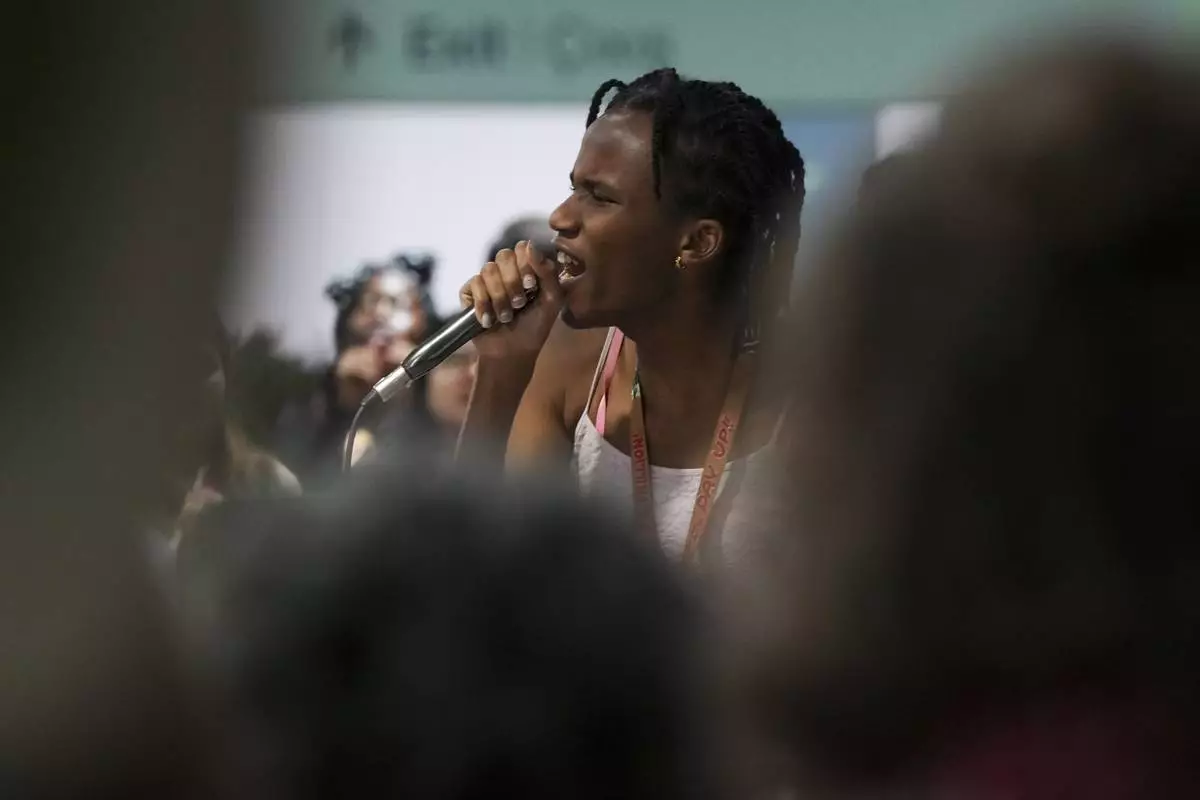
Activist Erica Njuguna speaks during a demonstration on climate finance at the COP29 U.N. Climate Summit, Wednesday, Nov. 20, 2024, in Baku, Azerbaijan. (AP Photo/Peter Dejong)
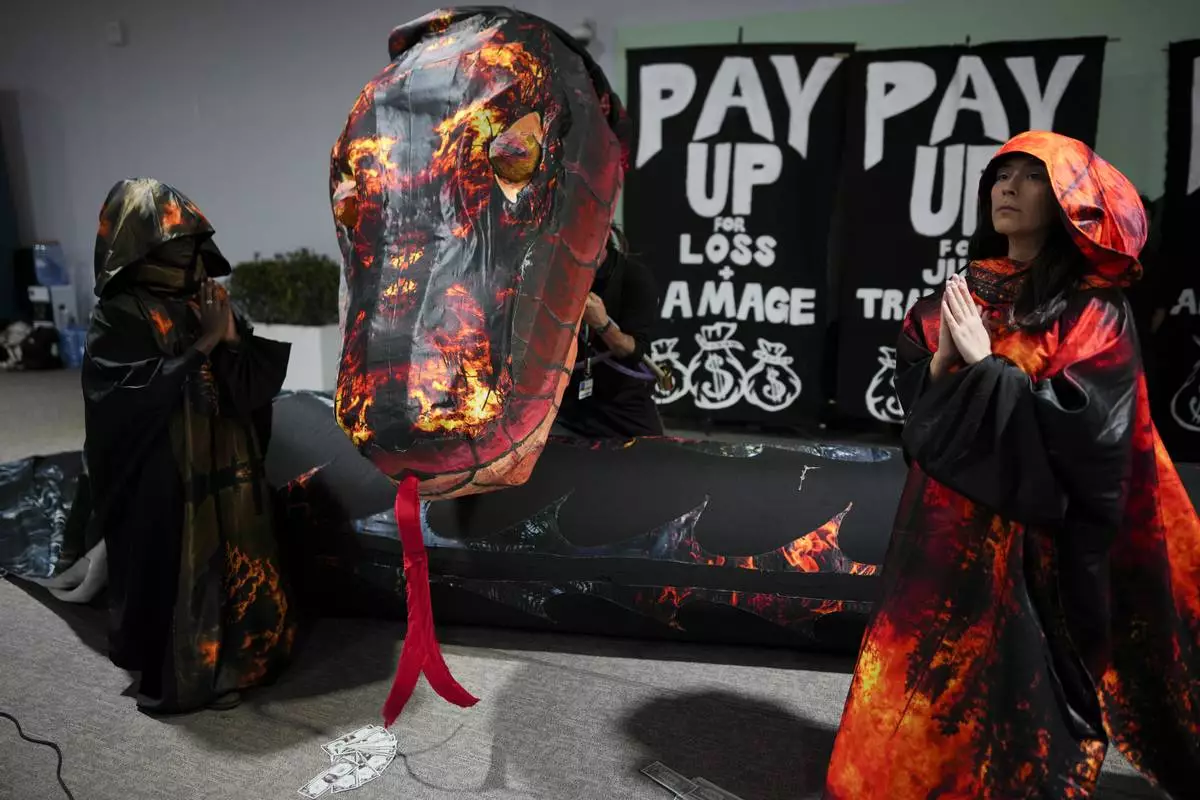
Activists participate in a demonstration for climate finance at the COP29 U.N. Climate Summit, Wednesday, Nov. 20, 2024, in Baku, Azerbaijan. (AP Photo/Peter Dejong)
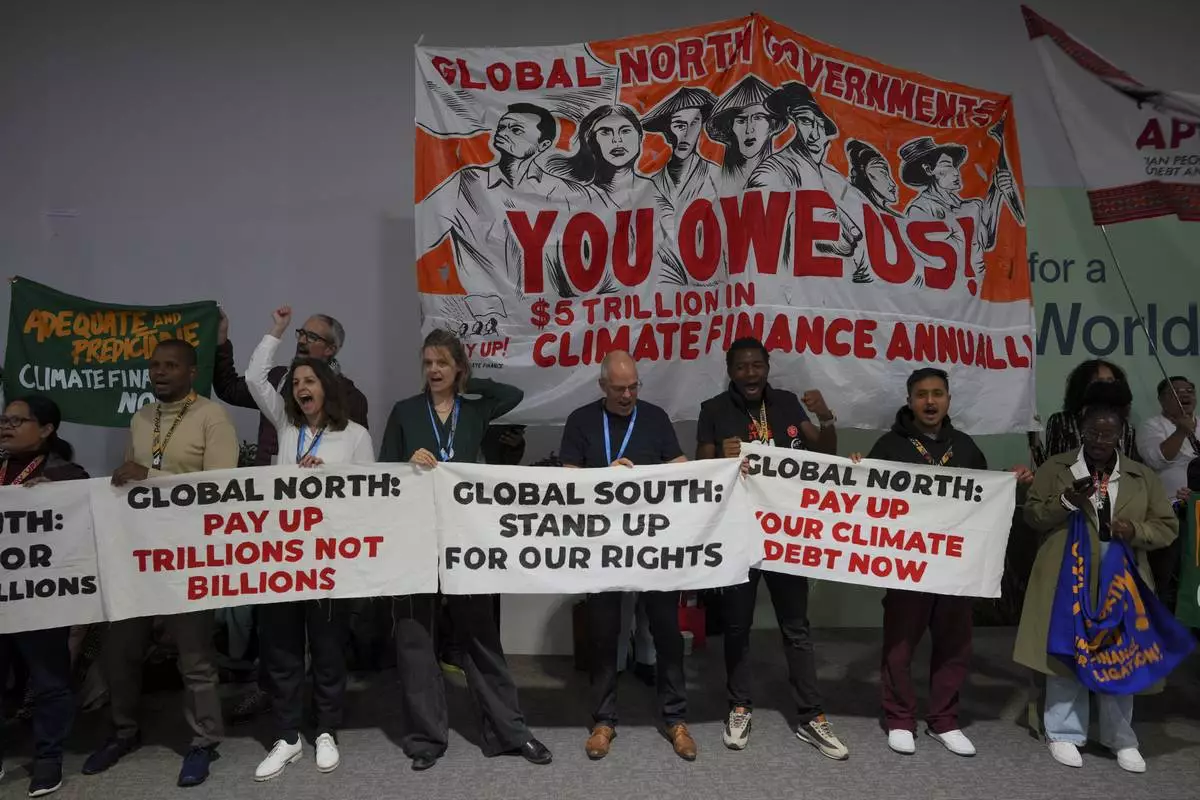
Activists participate in a demonstration for climate finance at the COP29 U.N. Climate Summit, Wednesday, Nov. 20, 2024, in Baku, Azerbaijan. (AP Photo/Peter Dejong)
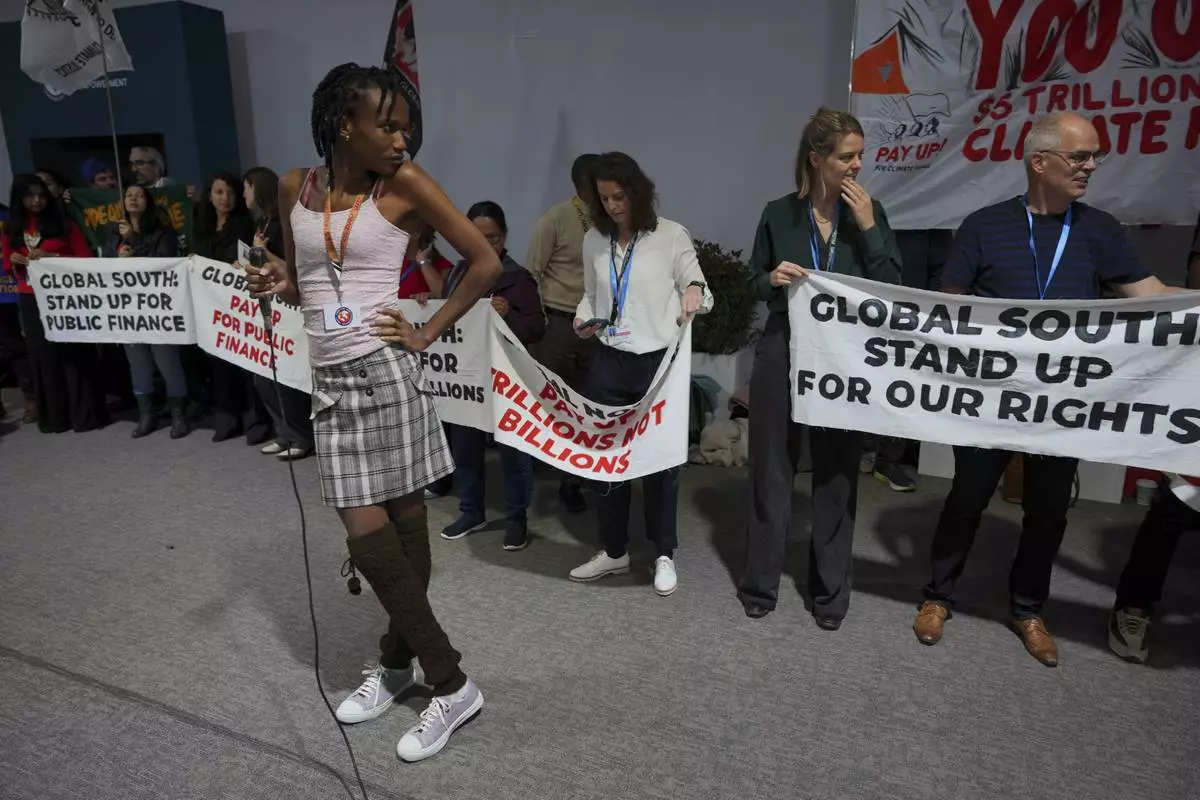
Activist Erica Njuguna leads a demonstration with signs reading "Global South: stand up for public finance" at the COP29 U.N. Climate Summit, Wednesday, Nov. 20, 2024, in Baku, Azerbaijan. (AP Photo/Peter Dejong)
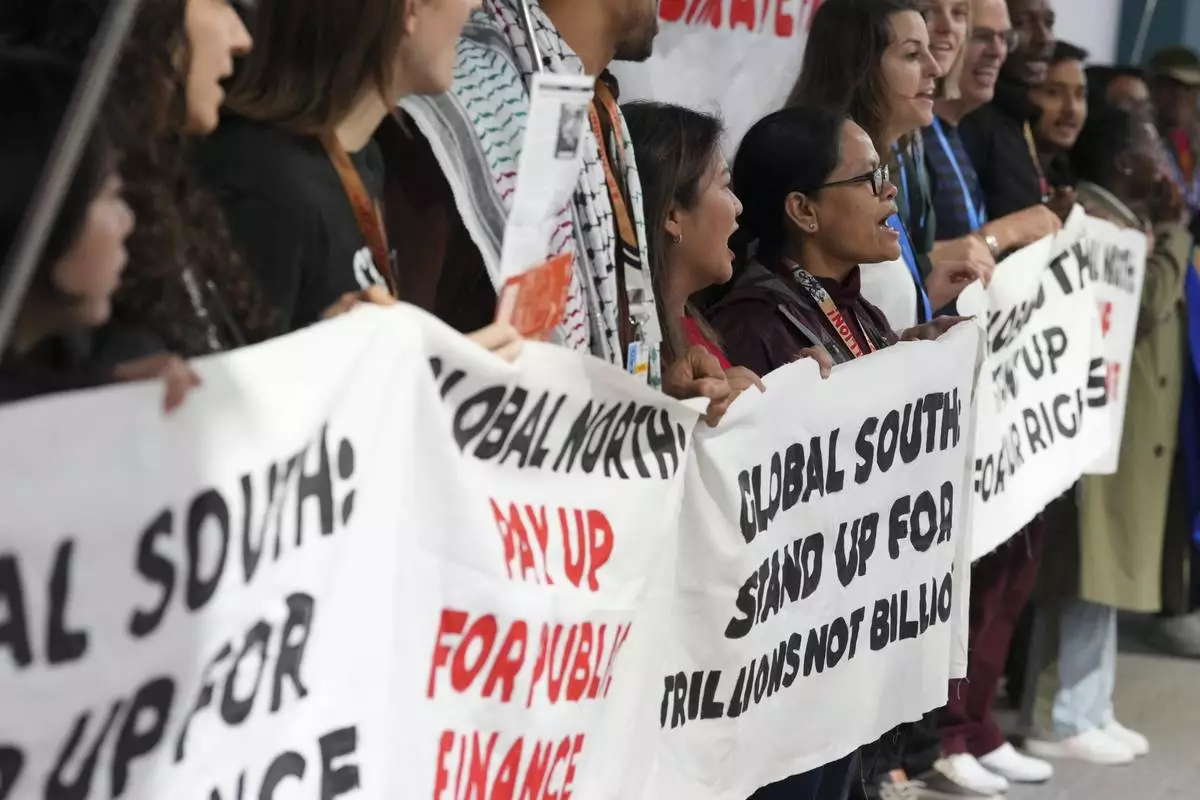
Activists participate in a demonstration for climate finance at the COP29 U.N. Climate Summit, Wednesday, Nov. 20, 2024, in Baku, Azerbaijan. (AP Photo/Peter Dejong)











